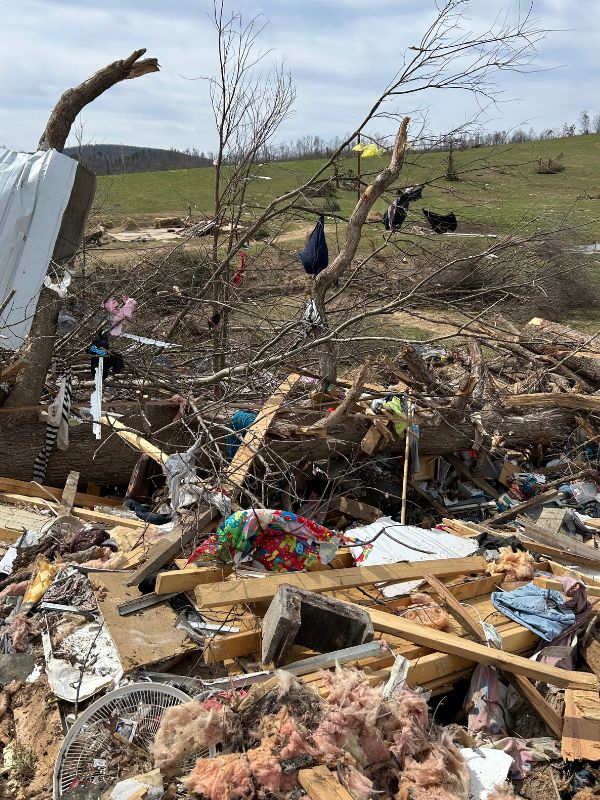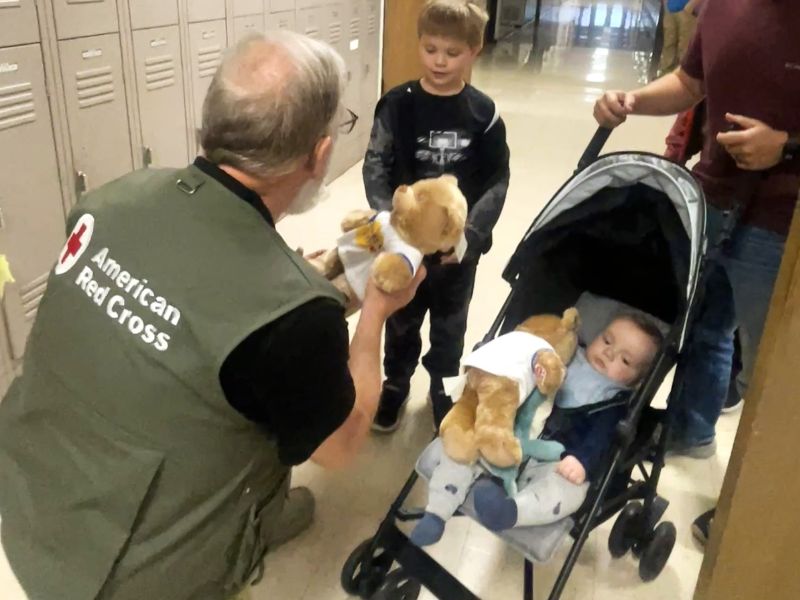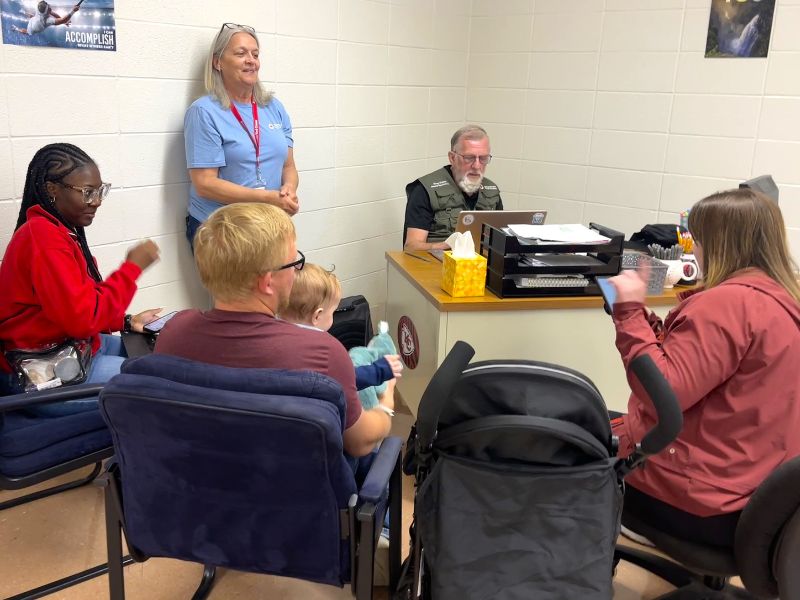
When a tornado tore through Piedmont, MO, many homes were damaged or destroyed, leaving debris like this where homes once stood.
By: Kate Walters, American Red Cross
The aftermath of a tornado in Piedmont, MO left homes in pieces and lives changed forever. Broken trees lined the streets, debris covered lawns, and scattered belongings told the story of a storm that hit hard and fast.
Among the damage, a mother stood holding her two young sons. She was grieving the loss of her parents, Mary and Matthew McFadden, who died when the tornado struck.
Days later, Malarie Littles met with American Red Cross volunteers at a local support center. She was still in shock, but what she found there surprised her.
The Red Cross team wasn’t just offering resources, they sat with her, listened to her story, and helped her begin to process the loss. Their presence, quiet but steady, brought comfort in one of the hardest moments of her life.
In the immediate aftermath of devastating events, communities face profound loss and trauma. Yet amidst tragedy, compassion often emerges. At the heart of that response is the Red Cross’s Integrated Condolence Care Team (ICCT), which provides support to families who’ve lost loved ones in disasters.

Red Cross volunteer Greg Gooch, a member of the Integrated Condolence Café Team, offers Build-A-Bear stuffed toys to the children of Malarie Littles, who parents died when a tornado struck Piedmont, MO.
ICCT brings together four areas of Red Cross service—Disaster Spiritual Care, Mental Health, Health Services, plus Casework and Recovery. The goal is to offer coordinated, personal support without overwhelming grieving families.
“It’s not transactional. It’s transformational,” says Bill Fasel, a longtime ICCT leader and volunteer from Kansas City, MO. “When someone dies in a disaster, we listen, we grieve with them, and we help them begin healing.”
That’s exactly what happened in Piedmont, where Malarie Littles and her sons, Mason and Matix, were among those helped by the Red Cross. Malarie admitted she was struggling.
“I’m not okay. I’m really trying,” she said.
Greg Gooch from Disaster Spiritual Care said their goal is simple but powerful: “We help people feel seen and supported when everything else feels shattered.”
Malarie was surprised by the depth of the help: “I thought the Red Cross just collected blood. I had no idea you all would help us so much.”
Walter Roberts from Disaster Mental Health added, “We’re there to help individuals put one foot in front of the other,” while Cathy Gordon from Health Services explained how they work to meet needs quickly and compassionately.
For Malarie, that help will go toward a shared gravestone for her parents. “One bigger one in the middle, with them both engraved on each side,” she said. She plans to include their faces too—something that brings emotional comfort. “That way we can see their faces when we visit them.”
Across the Piedmont area, neighbors also stepped up. “The community really helped,” Malarie said. Even small recoveries, like finding an old wedding photo in the debris, became deeply meaningful. “Mom kept that photo. It was from the wrong wedding, but she kept it anyway,” she remembered.

Members of the Red Cross Integrated Condolence Care Team meet with Malarie Littles and her family after her parents died when a tornado struck Piedmont, MO.
Red Cross teams brought the same kind of care to other communities hit by disaster, including Cushman, Arkansas. After three lives were lost there in one event, Red Cross staff met with each family, offering both financial help and a caring presence.
Bill shared one moment at a campground near Poplar Bluff, Missouri, where a tornado claimed a woman’s life. He sat quietly as her husband told the story of her loss.
“Sometimes the most healing thing we can offer is a space to tell the story,” Bill said.
While ICCT often offers immediate help, their real mission is human connection. In large-scale disasters, their model of care expands to meet grief wherever it appears.
Behind every visit is a trained team—nurses verifying fatalities, volunteers coordinating services, spiritual and mental health responders prepared to sit with someone on their worst day.
“There’s a quiet team behind every ICCT case,” Bill said. “Volunteers who’ve trained for months just to be ready to show up.”
Despite the emotional toll, Bill stays committed.
“Because I can, I do,” he said. “For families like the Littles, that presence means everything.”
For a moment, Marlarie’s memories return to her parents.
“We’ll figure out a new normal,” she said. “It’s important to keep their memory alive, especially for the kids.”
Support all the urgent humanitarian needs of the American Red Cross.
Find a drive and schedule a blood donation appointment today.
Your time and talent can make a real difference in people’s lives. Discover the role that's right for you and join us today!